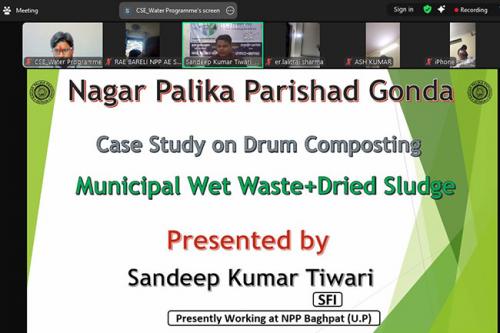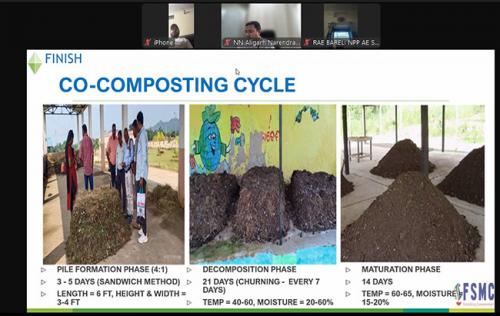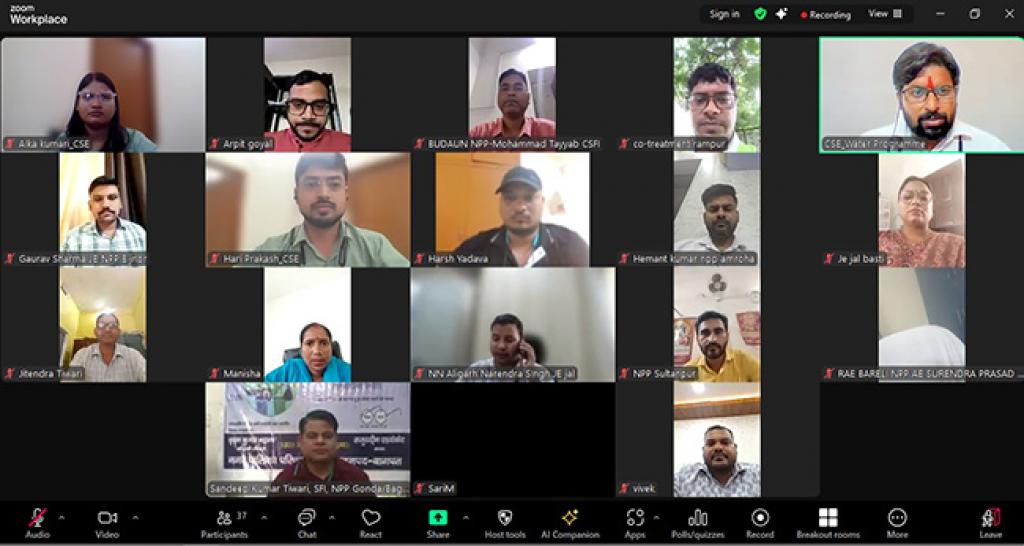Training Programme on Co-Composting of Biosolids
Background
Uttar Pradesh is making rapid strides in sustainable faecal sludge and septage management (FSSM), with 59 treatment plants operating across 56 Urban Local Bodies (ULBs). These facilities generate significant quantities of biosolids—a by-product of faecal sludge treatment. While this accumulation presents an environmental challenge, it also opens up opportunities for resource recovery.
When stabilized and treated effectively, biosolids are nutrient-rich and contain high organic matter, making them ideal for co-composting with organic municipal solid waste (MSW). This approach not only improves compost quality but also promotes a circular economy in waste management.

Objective of the Training
This online training programme aims to build the capacity of:
- ULB officials
- Sanitation engineers
- Plant operators
- Other relevant stakeholders
The focus is on promoting reuse of biosolids through co-composting, with the goals of:
- Reducing environmental burden
- Improving waste recovery
- Ensuring safe and sustainable practices
Outcomes
- Improved understanding of co-composting techniques
- Exposure to real-life case studies from Uttar Pradesh and Odisha
- Knowledge of policy and operational lessons
- Strengthened network of practitioners for knowledge exchange

Training Director
Subrata Chakraborty
Programme Director, Water Programme
CSE
Training Co-Ordinator
Manish Mishra
Programme Officer, Water Programme
CSE

Share this article